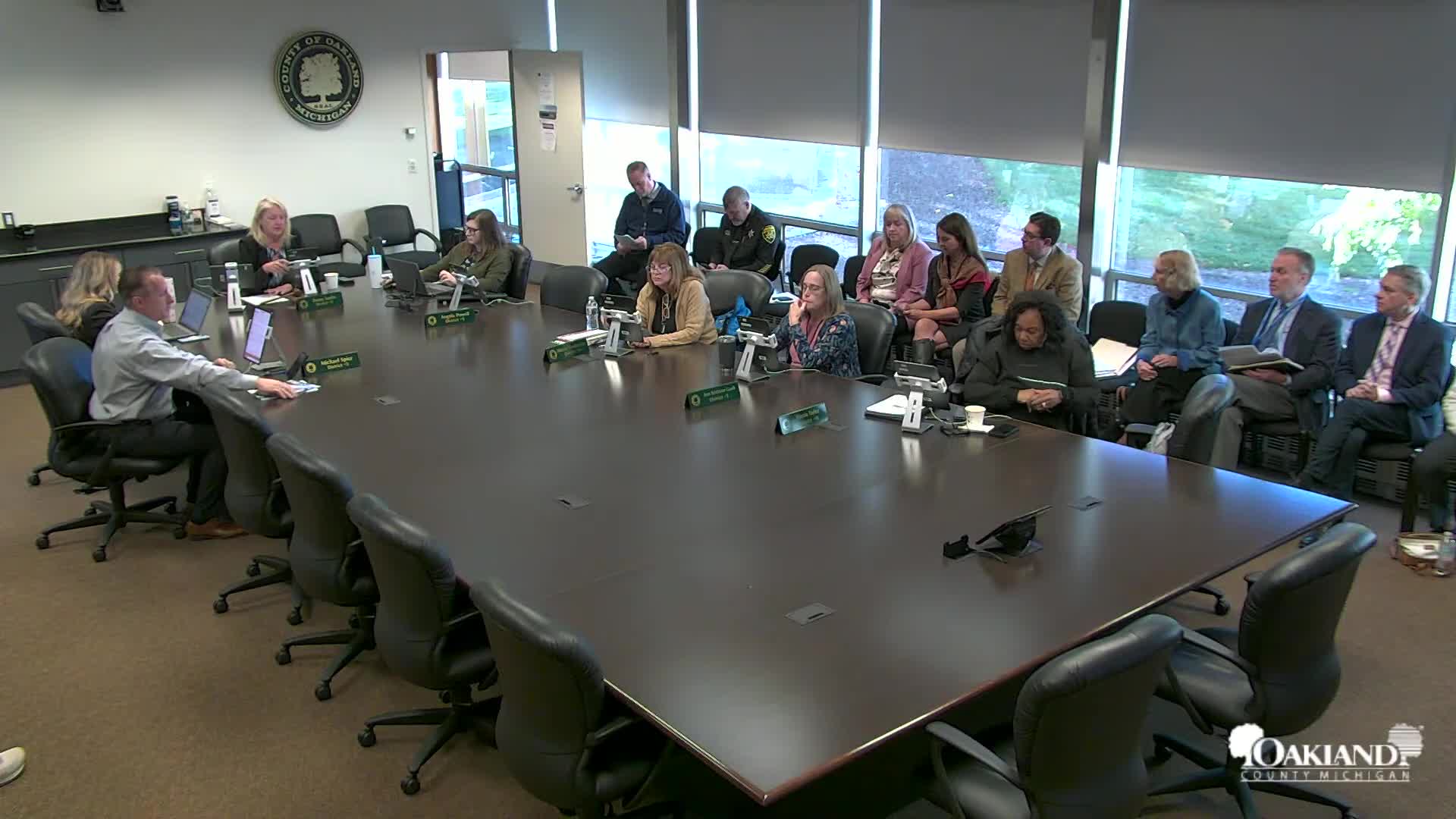Common Ground urges Oakland County to pause OCHN takeover of crisis services, warns of layoffs and service disruptions
Get AI-powered insights, summaries, and transcripts
Subscribe
Summary
Common Ground leaders told Oakland County commissioners the nonprofit faces major disruption if county crisis services are transferred to Oakland Community Health Network (OCHN), urging a pause and a public debate about the transition.
Common Ground leaders asked the Oakland County Board of Commissioners'Health and Human Services Committee on Nov. 4 to pause a planned transition of county‑funded crisis services to Oakland Community Health Network (OCHN), saying the change was already underway without a collaborative transition plan and that doing so risks service disruption and significant financial harm to their nonprofit.
"There isn't a transition plan," Heather Ray, identified in the presentation as CEO of Common Ground, told the committee, saying the plan the nonprofit received from OCHN was "very much one‑sided" and did not preserve Common Ground's interests. Ray and other speakers said Common Ground proposed three "must‑haves"—that the nonprofit not be financially damaged by the transfer, that its core administration remain in place, and that retention payments be made to keep staff delivering services during any handover. Presenters said OCHN rejected all three items.
Common Ground representatives provided operational details about how people access crisis care and gave basic performance figures: a resource and crisis phone hub (including the statewide 988 contract they operate) resolves most calls by phone; of walk‑ins and police drop‑offs, presenters said roughly 70% are stabilized within 24 hours while about 30% need a higher level of care, with some clients placed in a crisis residential program for up to two weeks.
Janet Sarkos, introduced as Common Ground'chief of operations, described workforce strain: the nonprofit estimates about 175 employees could be affected if the portion of services funded through OCHN (about 48% of Common Ground's current funding for those programs) is moved. "Our employees are really struggling and suffering, and it's causing service disruption to the people that we serve," Sarkos said, describing daily reports of staff leaving because of uncertainty and secrecy about the change.
Commissioners pressed Common Ground on finances, timelines and governance. Members noted that Common Ground's prior contract for these services was roughly $11 million and that an FY26 contract offered in October was for about $500–$516,000, leaving the nonprofit effectively month‑to‑month. Common Ground said jobs were already posted and that some transition activities had begun.
Common Ground staff also raised a potential conflict under state procurement practice if a single entity both manages and provides services as a PIHP/managed region. They asked commissioners to demand the citation if anyone claims the state mentally health code requires the local community mental health organization to provide crisis services directly; presenters said the statute requires a community mental health organization to ensure crisis services exist but does not mandate it deliver those services directly.
Several commissioners said the board should not immediately take management positions but that the policy question deserves broader public discussion. Commissioner Spitz and others requested a deeper dive into the transition plan; Commissioner Powell asked when OCHN would be given an opportunity to present their side. The committee agreed to ask OCHN to address the group at an upcoming meeting (OCHN is scheduled for a quarterly update next week, which commissioners flagged as a possible forum).
After the presentation and discussion, the committee voted to receive and file the literature Common Ground provided. The vote was recorded and the committee moved on to other agenda items.
What happens next: Commissioners asked staff to arrange OCHN's appearance at a future meeting so members can hear the other side, and several commissioners signaled interest in a study session focused on the transition plan and its timing before taking further formal action.
